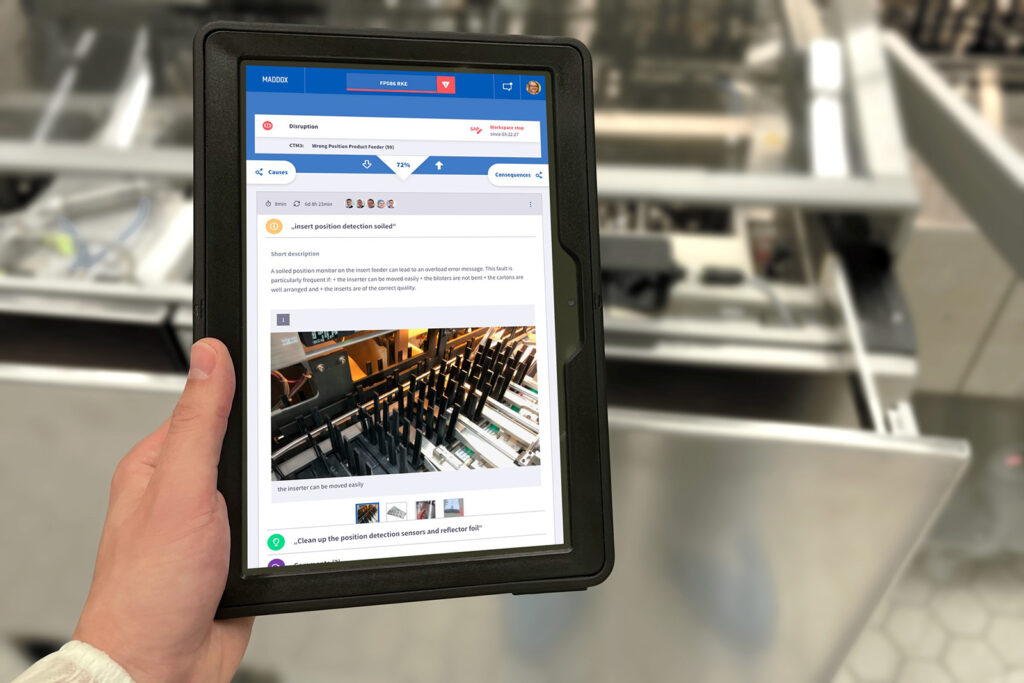
Efficiency rates for production machinery frequently fall far below what technology could achieve. The common reason is experienced employees are not always available when a failure occurs while other employees lack the experience to solve the actual cause. That is where MADDOX comes in.
A smart and self-learning assistance system that uses machine learning methods to analyze machine and process data. Via pattern recognition it also searches for similarities in failures and downtimes that occurred in the past. The system was developed by Peerox GmbH, a spin-off of the Fraunhofer Institute for Process Engineering and Packaging IVV.
“Many production facilities can barely get their efficiency rate over 60 percent. There is a lot of room for improvement. For the most part, the problem originates by not fixing the actual cause of the failure – for example, an operator cannot tell if the slider is jammed, the vacuum is clogged or if the root of the failure is something completely different,” says Andre Schult, CEO of Peerox GmbH. Of course, there are employees that have the practice and the necessary knowledge but often are unavailable in emergencies.
Considering the demographic change, shortage of skilled staff and higher turnover rates, the manufacturing industry becomes more and more dependent on the practice and knowledge of their experienced employees, what causes an increasingly serious problem. Peerox GmbH addresses this issue by digitalizing employees’ practical knowledge in MADDOX.
Knowledge cards help to find the cause and solution
MADDOX therefore, is a data driven solution that uses machine data such as pressure curves, temperatures, photoelectric sensor signals or error codes,” explains Schult. The self-learning search algorithm uses machine learning algorithms to analyze machine data and creates categories consisting of similar data patterns. Those are then linked to digital knowledge cards, where employees can use text, images and video to create visual documentation of failures and solutions – similar to a wiki page.
Digital assistants with psychological expertise
“Overall, MADDOX acts like a digital colleague that is always there to offer a helping hand,” says the engineer. The psychological component also plays an important role. Several features in the Linux-based knowledge management system incorporate human impulses like helpfulness and appreciation.
This in return encourages people to use the system frequently, motivating users to confirm, reject, correct and expand the entries, as well as to share their practical knowledge. It was the team’s longstanding collaboration with engineering psychologists at TU Dresden that made it possible to integrate these fundamental features into the assistant. “That is the secret what differentiates us from other knowledge management systems. We incorporate the psychological component, that allows us to increase engagement, improve documentation and reduce operating costs,” says Schult.



